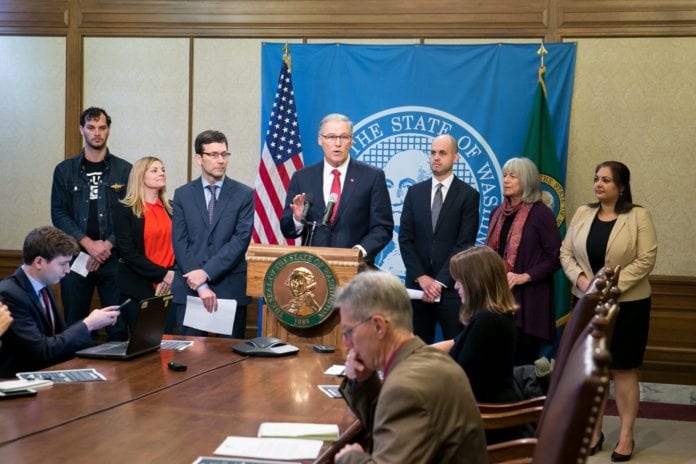Internet service providers are now free of net neutrality regulation, but several states may make them pay a price for prioritizing content. Some states are drafting laws that in many respects mimic net neutrality, and others will try to overturn the FCC’s decision by taking the agency to court.
New York attorney general Eric Schneiderman is spearheading legal action against the FCC in an effort to block the agency’s repeal of net neutrality rules.
“My office will sue to stop the FCC’s illegal rollback of net neutrality,” Schneiderman said. “We’ll be filing a claim to preserve protections for New Yorkers and all Americans.”
Meanwhile, California and Washington are looking at their own net neutrality laws. They want to leverage the state power to award contracts, franchises and access to the public right-of-way.
“California can regulate business practices to require net neutrality, condition state contracts on adhering to net neutrality, and require net neutrality as part of cable franchise agreements, as a condition to using the public right-of-way for internet infrastructure, and in broadband packages,” said California Senator Scott Wiener. Wiener plans to introduce legislation at the beginning of 2018.
Governor Jay Inslee of Washington plans to take control of as much policy as he can when it comes to internet service in his state. His proposal includes limiting the applicability of utility pole attachment rules to ISPs that demonstrate net neutrality, and using the state’s role as a purchaser of internet service to press for net neutrality from providers. He also wants to create a multi-state purchasing cooperative to buy internet service from net neutral providers.
Inslee also wants to pursue legislation authorizing public utility districts and rural and urban port districts to provide retail ISP and telecommunications services. In addition, he is calling for a “state-wide internet speed test” to help figure out where blocking or throttling may be occurring.
A state-wide internet speed test could also highlight areas in which broadband service does not exist. Presumably, these would be areas in which Washington might authorize utility districts or port districts to provide service.
Follow me on Twitter.

